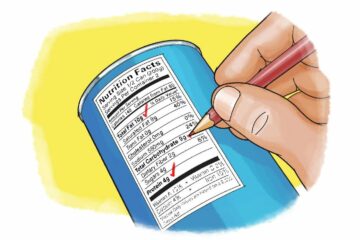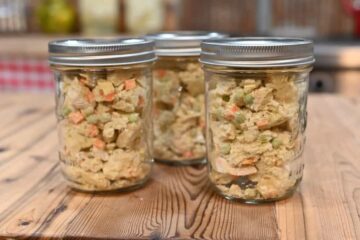Food contamination can pose serious health risks, and it’s important to be aware of the common causes in your kitchen. By understanding these unseen threats, you can take proactive measures to prevent contamination and ensure the safety of your food. Here are X common causes of food contamination that you should know:
- Cross-contamination: This occurs when bacteria from one food item is transferred to another, typically through contact with utensils, cutting boards, or countertops. For example, using the same knife to cut raw chicken and then slicing vegetables without washing it in between can lead to cross-contamination.
- Improper storage temperatures: Food that is not stored at the correct temperature can become a breeding ground for bacteria. Refrigerators should be set at 40°F (4°C) or below to slow down bacterial growth, while hot foods should be kept above 140°F (60°C) to prevent bacteria from multiplying.
- Inadequate hand hygiene: The hands can easily transfer bacteria from surfaces to food. Failing to wash hands properly before handling food, especially after using the restroom, touching raw meat, or handling pets, can introduce harmful pathogens into your meals.
- Contaminated water: Water used for cooking, washing produce, or making ice cubes can be a source of contamination if it contains harmful microorganisms. Ensuring that your water source is clean and safe is crucial in preventing foodborne illness.
- Poor cleaning practices: Insufficient cleaning of kitchen surfaces, utensils, and equipment can leave behind traces of bacteria or other contaminants. Regularly sanitizing cutting boards, countertops, and kitchen tools is essential for maintaining a hygienic environment.
- Raw or undercooked foods: Consuming raw or undercooked foods increases the risk of foodborne illnesses caused by bacteria like Salmonella or E. coli. Properly cooking foods to their recommended internal temperatures can help eliminate these pathogens.
- Pest infestation: Insects, rodents, and other pests can carry harmful bacteria and contaminate your food. Keeping your kitchen clean, sealing food properly, and addressing any pest issues promptly are key in preventing contamination.
- Contaminated utensils and equipment: Kitchen tools that are not cleaned thoroughly or shared between raw and cooked foods can introduce bacteria into your meals. It’s important to wash utensils and equipment with hot soapy water or use the dishwasher if possible.
- Food handling by sick individuals: Preparing food while sick with a contagious illness can lead to the transfer of pathogens to the food. It’s crucial to avoid handling food if you are experiencing symptoms like diarrhea, vomiting, or respiratory infections.
- Lack of awareness about expiration dates: Consuming expired or spoiled food can cause food poisoning. Regularly check the expiration dates on perishable items and discard any foods that show signs of spoilage, such as unusual odors or mold growth.
By being mindful of these different types of food contamination, you can minimize the risks and promote a safe and healthy kitchen environment for you and your loved ones. Remember to prioritize proper hygiene practices, handle food safely, and maintain a clean kitchen to prevent any unseen threats from compromising the safety of your meals.
In addition, it is important to store food at the correct temperatures. Refrigerated items should be kept at 40°F (4°C) or below, while hot foods should be kept above 140°F (60°C) to prevent bacterial growth. Similarly, when defrosting frozen items, it is best to do so in the refrigerator rather than at room temperature to minimize the risk of bacteria multiplying.
Regularly sanitizing surfaces and kitchen tools can also help prevent cross-contamination. Use a solution of one tablespoon of bleach mixed with one gallon of water to disinfect cutting boards, countertops, and other surfaces. Utensils and dishes should be washed thoroughly with hot soapy water after each use.
By following these guidelines, you can greatly reduce the chances of food contamination and ensure that your meals are safe to consume.rature to minimize the risk of bacteria multiplying.
Regularly sanitizing surfaces and kitchen tools can also help prevent cross-contamination. Use a solution of one tablespoon of bleach mixed with one gallon of water to disinfect cutting boards, countertops, and other surfaces. Utensils and dishes should be washed thoroughly with hot soapy water after each use.
By following these guidelines, you can greatly reduce the chances of food contamination and ensure that your meals are safe to consume. Remember, it’s not just about taste and presentation, but also about the well-being of those who will be enjoying your culinary creations. So, make food safety a priority in your kitchen and take the necessary steps to keep your loved ones healthy and happy. And with dishwashers available throughout NZ, cleaning up after your culinary triumphs is easier than ever, leaving you more time to savor the moment







